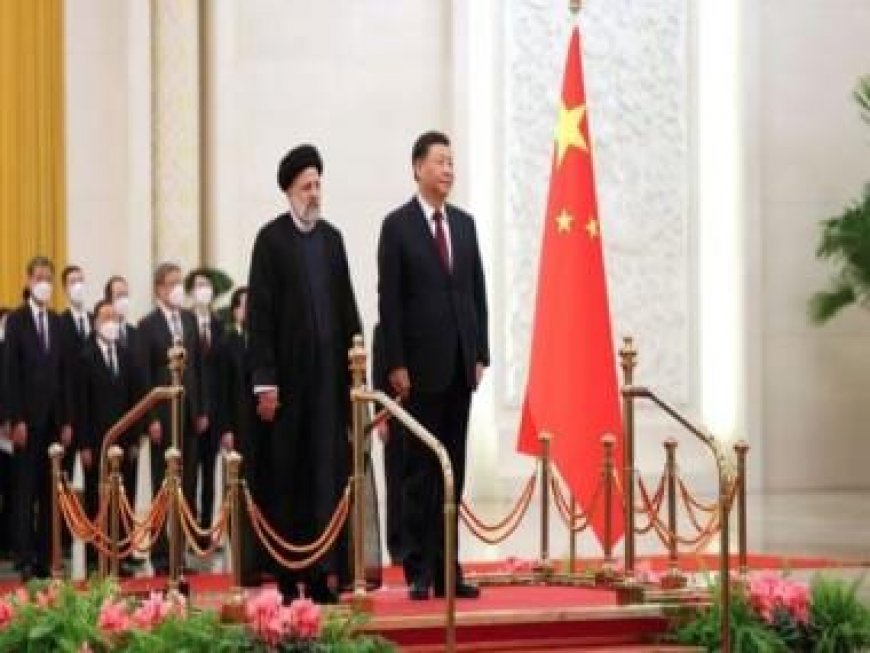China's Xi sends condolences to Iran president on 'terrorist attack'
China's Xi sends condolences to Iran president on 'terrorist attack'

China’s President Xi Jinping sent a message of condolence to the Iranian president on Thursday for the “terrorist attack” a day earlier, Chinese state television CCTV said.
Two explosions killed nearly 100 people and wounded scores in Iran on Wednesday at a ceremony to commemorate commander Qassem Soleimani who was killed by a U.S. drone in 2020. Iranian officials blamed Wednesday’s incident on unspecified “terrorists”.
Xi said he was shocked at the attack and stressed that China opposes all forms of terrorism, “strongly condemns terrorist attacks”, and firmly supports Iran’s efforts to safeguard national security and stability, Xinhua said.
Iranian state television and officials described the attacks as bombings, without immediately giving clear details of what happened. The attacks came a day after a deputy head of the Palestinian militant group Hamas was killed in a suspected Israeli strike in Beirut.
The first bomb Wednesday was detonated around 3 p.m., and the other went off some 20 minutes later, the Iranian interior minister, Ahmad Vahidi, told state television. He said the second blast killed and wounded the most people.
Images and video shared on social media appeared to correspond with the accounts of officials, who said the first blast happened about 700 meters (765 yards) from Soleimani’s grave in the Kerman Martyrs Cemetery near a parking lot. The crowd then rushed west along Shohada Street, where the second blast struck about 1 kilometre (0.62 miles) from the grave.
A delayed second explosion is often used by militants to inflict more casualties by targeting emergency personnel responding to an attack.
Iranian state TV and state-run IRNA news agency quoted emergency officials for the casualty figures. Authorities said Thursday would be a national day of mourning.
Iran’s Supreme Leader Ayatollah Ali Khamenei said the attackers will face “a harsh response,” though he didn’t name any possible suspect. Iranian President Ebrahim Raisi added: “Undoubtedly, the perpetrators and leaders of this cowardly act will soon be identified and punished.”
Iran has multiple foes who could be behind the assault, including exile groups, militant organizations and state actors.
While Israel has carried out attacks in Iran over its nuclear program, it has conducted targeted assassinations, not mass casualty bombings. A U.S. State Department spokesman, Matthew Miller, said American officials had “no reason” to believe Israel was involved in Wednesday’s attack in Iran. That was echoed by National Security Council spokesman John Kirby at the White House, who said “our hearts go out to all the innocent victims and their family members.”
Sunni extremist groups including the Islamic State group have conducted large-scale attacks in the past that killed civilians in Shiite-majority Iran, though not in relatively peaceful Kerman.
Iran also has seen mass protests in recent years, including those over the death of 22-year-old Mahsa Amini in 2022. The country also has been targeted by exile groups in attacks dating back to the turmoil surrounding its 1979 Islamic Revolution.
Iran itself has been arming militant groups over the decades, including Hamas, the Lebanese Shiite militia Hezbollah and Yemen’s Houthi rebels. As Israel wages its devastating war in Gaza after Hamas’ Oct. 7 attacks that killed 1,200 people, both Hezbollah and the Houthis have launched attacks targeting Israel that they say come on behalf of the Palestinians.
Israel is suspected of launching the attack Tuesday that killed a deputy head of Hamas in Beirut, but that attack caused limited casualties in a densely populated neighbourhood of the Lebanese capital. Last week, a suspected Israeli strike killed a Revolutionary Guard commander in Syria.
A Houthi spokesman, Mohammed Abdel-Salam, sought to link the bombings to Iran’s “support for the resistance forces in Palestine and Lebanon,” though he did not specifically blame anyone for the attack. Some Iranian officials also hinted at Israeli and American involvement without offering evidence, which is common after militant attacks.
In Beirut, Hezbollah leader Hassan Nasrallah called the people who died in the attacks “martyrs who died on the same road, cause and battle that was led by” Soleimani.
The government of neighbouring Iraq expressed condolences to the victims, and the European Union issued a statement offering “its solidarity with the Iranian people.” Even Saudi Arabia, a longtime regional rival which reached a détente with Iran last year, offered its sympathies.
Soleimani was the architect of Iran’s regional military activities and is hailed as a national icon among supporters of Iran’s theocracy. He also helped secure Syrian President Bashar Assad’s government after the 2011 Arab Spring protests against him turned into a civil, and later a regional, war that still rages today.
Soleimani had been relatively unknown in Iran until the 2003 U.S. invasion of Iraq. His popularity and mystique grew after American officials called for his killing over his help in arming militants with penetrating roadside bombs that killed and maimed U.S. troops.
A decade and a half later, Soleimani had become Iran’s most recognizable battlefield commander. He ignored calls to enter politics but grew as powerful, if not more so, than its civilian leadership.
Ultimately, a drone strike launched by the Trump administration killed the general, part of escalating incidents that followed America’s 2018 unilateral withdrawal from Tehran’s nuclear deal with world powers.
Soleimani’s death has drawn large processions in the past. At his funeral in 2020, a stampede broke out in Kerman and at least 56 people were killed and more than 200 were injured as thousands thronged the procession.
Until Wednesday, the deadliest attack to strike Iran since the revolution was the 1981 truck bombing of the Islamic Republican Party’s headquarters in Tehran. That attack killed at least 72 people, including the party’s leader, four government ministers, eight deputy ministers and 23 parliament members.
In 1978 just ahead of the revolution, an intentionally set fire at the Cinema Rex in Abadan killed hundreds of people.
With inputs from agencies.
What's Your Reaction?



























































